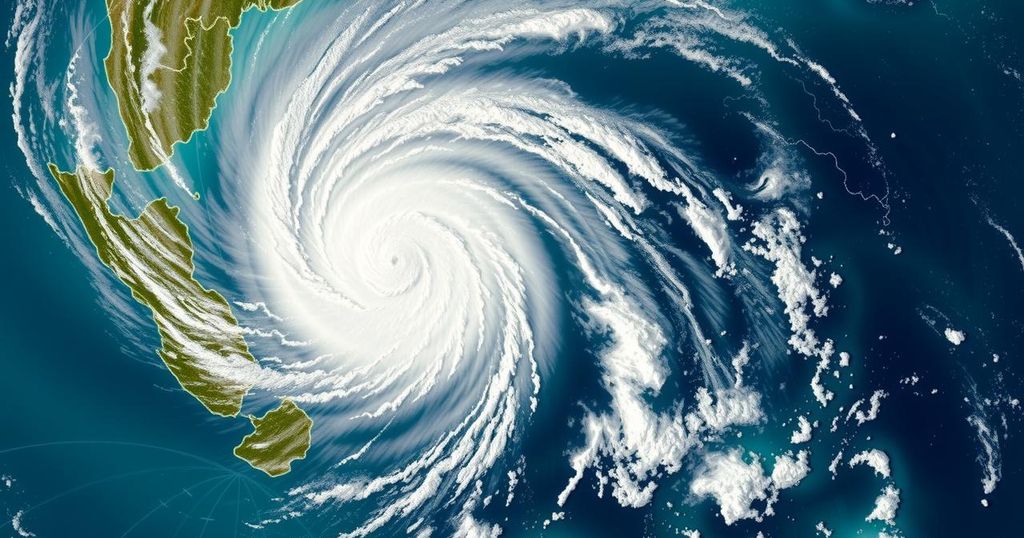Emergency Appeal for Tropical Cyclone Chido: Impact and Urgent Response
Tropical Cyclone Chido, reaching category 4, has caused severe devastation in the Southwest Indian Ocean, resulting in at least 142 deaths and affecting over 622,000 individuals across Madagascar, Mozambique, Mayotte, Comoros, and Malawi. The cyclone’s extensive damage to infrastructure and agriculture underscores the urgent need for humanitarian assistance and disaster preparedness in the region.
Tropical Cyclone Chido has emerged as the initial cyclone to cause significant destruction in the Southwest Indian Ocean during what is anticipated to be an early and above-average cyclone season. This cyclone, which reached category 4 status with sustained winds of 220 km/h, has tragically resulted in at least 142 confirmed fatalities across affected regions, including Mozambique, Mayotte, and Malawi, along with over 3,300 injuries.
Madagascar was the first nation to feel the cyclone’s effects, impacting approximately 135,838 individuals, displacing many, and causing damage to infrastructure and agriculture due to heavy rains and flooding. Following the cyclone’s path, the Comoros government declared a week of mourning, noting that around 64,167 individuals were affected, particularly on the islands of Anjouan and Moheli, where homes were destroyed, and crops significantly impacted.
In Mayotte, about 70 percent of the population, totaling approximately 230,000 people, faced severe consequences. Significant infrastructure was damaged, with about 35,000 houses destroyed and essential services disrupted. An estimated 100,000 individuals are currently housed in temporary accommodations that lack proper sanitation and food supplies.
Mozambique reported that approximately 622,000 people experienced the cyclone’s wrath, particularly in Cabo Delgado, where more than 509,800 individuals suffered damage to their living conditions. The destruction of over 130,000 shelters has exacerbated existing vulnerabilities in the region. Additionally, Malawi witnessed nearly 45,000 people affected by the cyclone’s remnants, emphasizing the urgent need for continued humanitarian assistance.
As damage assessments continue, it is critical for National Societies of the Red Cross and Red Crescent to engage in search and rescue operations and provide necessary relief aid. This situation underscores the urgent need for preparedness and resilience in response to increasingly intense tropical storms. The Emergency Appeal aims to offer vital resources to enhance humanitarian assistance effectiveness and improve the resilience of communities at risk during the remainder of the cyclone season.
The Southwest Indian Ocean is susceptible to tropical cyclones, particularly during heightened cyclone seasons. Tropical Cyclone Chido serves as a stark reminder of the destructive power that these storms can wield, necessitating prompt response and assistance initiatives to mitigate damage and support affected populations. Countries such as Madagascar, Mozambique, Mayotte, Comoros, and Malawi are particularly vulnerable to natural disasters, making ongoing disaster preparedness and emergency response crucial in safeguarding communities and restoring livelihoods following such events.
In summary, Tropical Cyclone Chido’s devastating impact serves as a significant call to action for improved disaster management and humanitarian support in the Southwest Indian Ocean region. With over 140 lives lost and hundreds of thousands affected, the necessity for immediate relief efforts is paramount. As assessments of the damage continue, the resolve to fortify communities against future storms must be reinforced, aligning with the overarching goal of enhancing regional resilience and preparedness.
Original Source: reliefweb.int




Post Comment